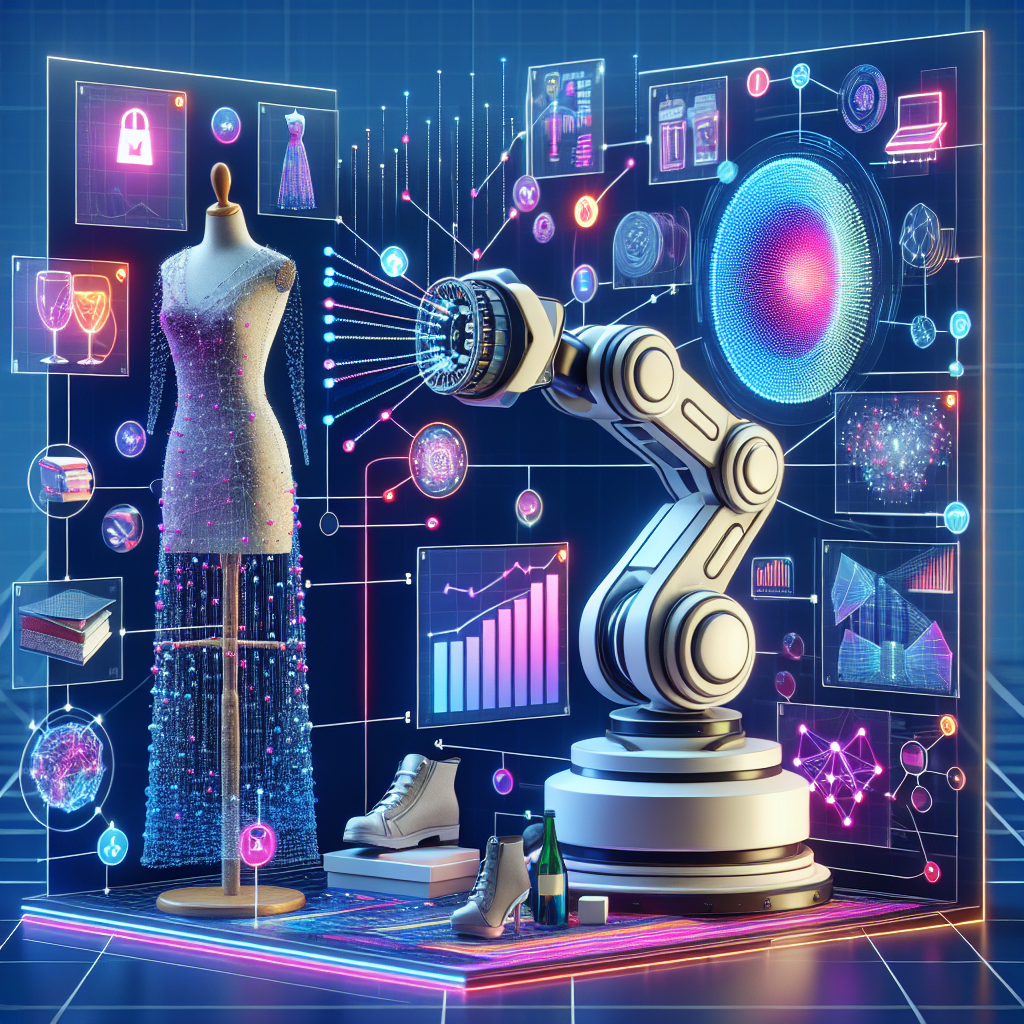In recent years, artificial intelligence (AI) has been revolutionizing the fashion retail industry, particularly in the areas of analytics and business intelligence. AI technologies are increasingly being used by fashion retailers to gain valuable insights into consumer behavior, market trends, inventory management, and more. This allows retailers to make data-driven decisions that can improve customer satisfaction, increase sales, and drive business growth.
The Role of AI in Fashion Retail Analytics
AI plays a crucial role in fashion retail analytics by enabling retailers to analyze large volumes of data quickly and accurately. Retailers can use AI algorithms to process data from various sources, such as sales transactions, customer reviews, social media, and website traffic, to identify patterns and trends that can help them better understand their customers and market dynamics.
One of the key benefits of AI in fashion retail analytics is its ability to provide retailers with real-time insights. By analyzing data in real-time, retailers can quickly identify emerging trends, customer preferences, and market opportunities. This allows retailers to make timely decisions and adjustments to their product offerings, pricing strategies, and marketing campaigns.
AI also helps retailers improve their inventory management by predicting demand, optimizing stock levels, and reducing overstock and out-of-stock situations. By analyzing historical sales data and external factors such as weather, holidays, and events, AI algorithms can forecast future demand with a high degree of accuracy. This enables retailers to optimize their inventory levels, reduce costs, and improve customer satisfaction.
Furthermore, AI-powered analytics can help retailers personalize the shopping experience for their customers. By analyzing customer data and behavior, retailers can create personalized recommendations, promotions, and marketing messages that are tailored to each individual customer. This not only enhances the customer experience but also increases customer loyalty and retention.
The Role of AI in Fashion Retail Business Intelligence
Business intelligence is another area where AI is making a significant impact on the fashion retail industry. AI technologies can help retailers analyze and visualize data to gain actionable insights that drive strategic decision-making and business performance.
AI-powered business intelligence tools can aggregate data from multiple sources, such as sales, inventory, customer feedback, and market trends, to provide retailers with a comprehensive view of their business operations. By analyzing this data, retailers can identify areas of improvement, opportunities for growth, and potential risks that may impact their business.
AI can also help retailers optimize their pricing strategies by analyzing market trends, competitor pricing, and customer behavior. By leveraging AI algorithms, retailers can set dynamic pricing that is based on real-time data and demand signals. This enables retailers to maximize profitability, increase sales, and stay competitive in the market.
In addition, AI can help retailers enhance their marketing strategies by analyzing customer data, segmenting customers based on their preferences and behavior, and targeting them with personalized promotions and messages. By leveraging AI-powered marketing tools, retailers can improve customer engagement, drive sales, and build brand loyalty.
FAQs:
1. What are some common AI technologies used in fashion retail analytics and business intelligence?
Some common AI technologies used in fashion retail analytics and business intelligence include machine learning, natural language processing, computer vision, and predictive analytics. These technologies enable retailers to analyze large volumes of data, identify patterns and trends, and make data-driven decisions.
2. How can AI help retailers improve inventory management?
AI can help retailers improve inventory management by predicting demand, optimizing stock levels, and reducing overstock and out-of-stock situations. By analyzing historical sales data and external factors such as weather, holidays, and events, AI algorithms can forecast future demand with a high degree of accuracy. This enables retailers to optimize their inventory levels, reduce costs, and improve customer satisfaction.
3. How can AI help retailers personalize the shopping experience for their customers?
AI can help retailers personalize the shopping experience for their customers by analyzing customer data and behavior. By leveraging AI algorithms, retailers can create personalized recommendations, promotions, and marketing messages that are tailored to each individual customer. This not only enhances the customer experience but also increases customer loyalty and retention.
4. How can AI help retailers optimize their pricing strategies?
AI can help retailers optimize their pricing strategies by analyzing market trends, competitor pricing, and customer behavior. By leveraging AI algorithms, retailers can set dynamic pricing that is based on real-time data and demand signals. This enables retailers to maximize profitability, increase sales, and stay competitive in the market.
5. How can AI help retailers enhance their marketing strategies?
AI can help retailers enhance their marketing strategies by analyzing customer data, segmenting customers based on their preferences and behavior, and targeting them with personalized promotions and messages. By leveraging AI-powered marketing tools, retailers can improve customer engagement, drive sales, and build brand loyalty.
In conclusion, AI is playing a vital role in transforming the fashion retail industry by providing retailers with powerful analytics and business intelligence capabilities. By leveraging AI technologies, retailers can gain valuable insights into consumer behavior, market trends, inventory management, and more, enabling them to make data-driven decisions that drive business success. As AI continues to evolve and become more sophisticated, the role of AI in fashion retail analytics and business intelligence is only expected to grow in importance in the coming years.

